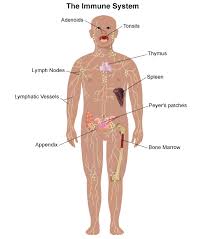 Identifying the best ways to stimulate the immune system to fight infectious diseases and cancer makes eminent sense and could provide highly attractive benefits. But it is not easy to do. Here is a list of category-leading immunostimulants, followed by a discussion of the issues involved.
Identifying the best ways to stimulate the immune system to fight infectious diseases and cancer makes eminent sense and could provide highly attractive benefits. But it is not easy to do. Here is a list of category-leading immunostimulants, followed by a discussion of the issues involved.
Cytokines: IL-2 has shown itself to be an effective general immunostimulant in scores of clinical trials against different indications and appears promising against HIV (Cohen and Powderly, 2004). Used in high doses, IL-2 has significant side effects, so it is best used as a low-dose adjuvant. Other cytokines of proven general merit include G-CSF and GM-CSF, both for hematopoiesis. Interferons may work in specific cases, but their side effects make them less suitable as broad-spectrum adjuvants.
Microbial fragments/toxins: Of the large number of candidates, beta-glucans (also found in plants) are the most frequently investigated as an approach to provoking a general immune response (Wagner, 1999).
